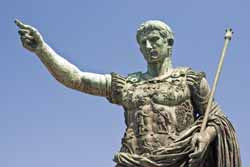Understanding the Roman Empire's elite
Europe in the last two decades has seen the formation of transnational elites in the educational, managerial and administrative realms. Understanding the impact of this development requires going back to the time of the Roman Empire. It was in the late third and fourth centuries that a new governing class was created which brought together aristocrats from all across the Mediterranean World. The 'Trans-regional elites in the later Roman Empire' (TRANS-REGIONAL ELITE) project examined the significance of this development. Key areas of focus were how the formation of a trans-regional elite reshaped the ways in which its members lived and viewed their place in the world. What was discovered in the course of the project is that the increase in public institutions did not create conflict between the state and the aristocrats. Instead, it helped to form a new self-understanding. Roman aristocrats increasingly saw themselves as a global and unified aristocracy. Superiority was based on moral excellence and loyalty to the Roman Empire. Research results were presented to the scholarly public via two books and five peer-reviewed articles. One book addresses the social and cultural effects of the creation of a new trans-regional governing class in the later Roman Empire. The other examines trans-regional elites in ancient Eurasia from a comparative perspective. Beyond academic benefits, the project led to the creation of new research collaborations between Europe and the United States.
Keywords
Roman Empire, elite, centralised bureaucracy, trans-regional, aristocracy



